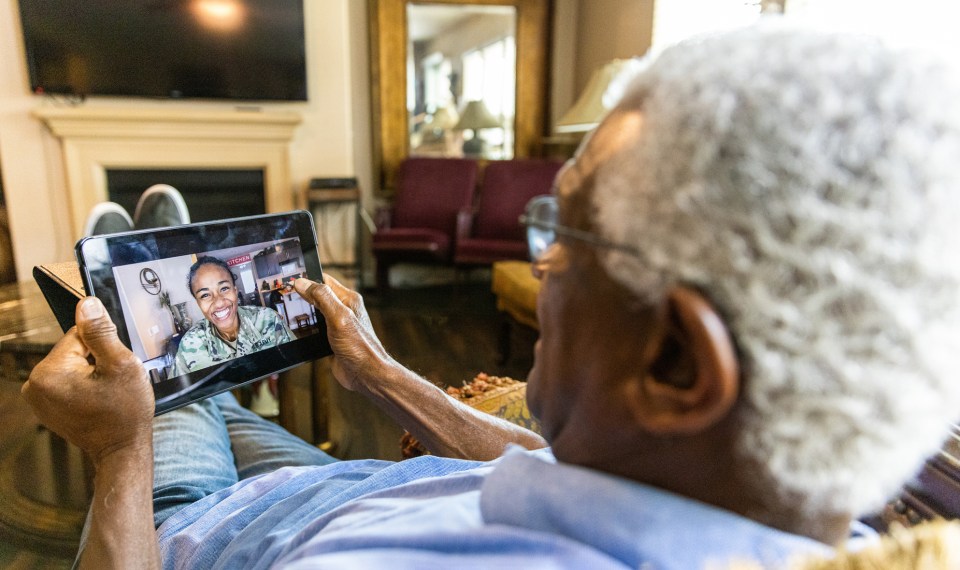Hospice care is often misunderstood: Does choosing hospice mean giving up hope? Is it only for the last few days of life?
Many people don’t realize that hospice is not a place, but rather a philosophy of care. It is provided by a team of professionals dedicated to delivering physical, psychological, spiritual and emotional comfort to improve quality of life for those living with a terminal illness.
Below, Encompass Health – Home Health & Hospice dispels some of the common misconceptions surrounding hospice care:
Misconception: Choosing hospice means giving up hope.
Fact: Choosing hospice doesn’t mean giving up hope; it redefines it.
Hospice helps patients live fully and completely. Hospice provides medication for symptoms and pain management, so patients can live with dignity, not in fear. It also builds personal and spiritual connections by allowing patients to spend time with their loved ones and live on their own terms. Many family members look back on their hospice experience with gratitude, wishing their loved one would have received hospice sooner.
Misconception: Hospice is only for the last few days of life.
Fact: Hospice patients and families can receive care for six months or longer depending on the course of the illness.
To be eligible for hospice, a patient must have a life expectancy of six months or less. This decision is often a reasonable estimate based on available information, but may not account for all factors. Hospice services can help patients and families understand what to expect, control pain and symptoms and receive needed support.
Misconception: Choosing hospice means changing my physician.
Fact: A patient can continue to visit their primary care physician while on hospice.
Patients often have a strong relationship with their primary care physician and trust them for medical and emotional support. Many patients feel their physician knows them best and fully understands their needs.
Medicare hospice regulations allow the referring physician to remain the primary caregiver throughout the patient’s time on hospice as long as that’s what the physician and patient prefer. If the primary physician chooses to have the hospice physician preside over the patient’s care, then the hospice physician becomes primary. The hospice care team communicates with the primary physician on a regular basis to ensure they stay informed on the patient’s care.
Misconception: Hospice patients must be homebound.
Fact: You do not need to be homebound to qualify for the Medicare hospice benefit.
A homebound requirement is only required for Medicare home health services. Hospice patients are encouraged to experience as much as possible and are able to continue participating in the activities they love, such as attending church, visiting family and even traveling out of town.
Misconception: Hospice care is expensive.
Fact: Hospice care is covered by the Medicare hospice benefit and most private insurers
There is no copay or out-of-pocket cost for qualified Medicare beneficiaries, and hospice is always covered under Traditional Medicare. If the patient has a Medicare Advantage plan and elects hospice, Traditional Medicare will still pay for hospice care. All services, supplies, medication and medical equipment related to the primary diagnosis are covered under the hospice benefit.
Misconception: Palliative care is the same thing as hospice care.
Fact: While the objective of both hospice and palliative care is pain and symptom relief, the prognosis and goals of care are different.
Palliative care seeks to provide comfort care and symptom relief from serious illnesses that are not yet considered to be life-limiting. Palliative care can be given at any stage of the illness, from prognosis to end of life, and also in conjunction with curative treatments. It is often provided in a hospital or long-term care facility.
Hospice provides comfort care for those facing a terminal illness with a prognosis of six months or less. Hospice patients are no longer pursuing curative treatments and instead hospice helps to control pain and symptoms while also providing emotional support. It is provided wherever the patient calls home.
Click here to learn more about hospice care provided by Encompass Health.
The content of this site is for informational purposes only and should not be taken as professional medical advice. Always seek the advice of your physician or other qualified healthcare provider with any questions you may have regarding any medical conditions or treatments.



